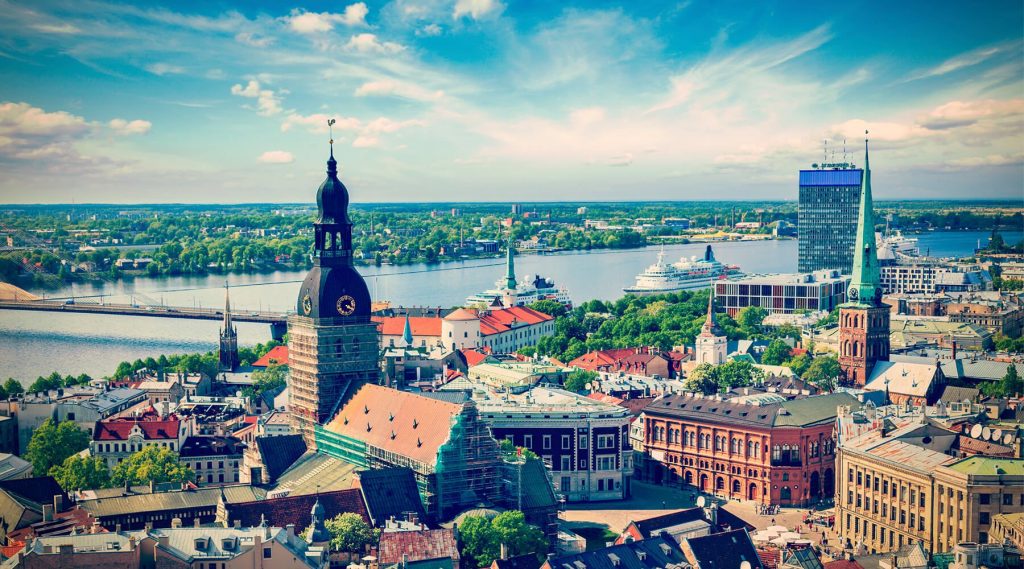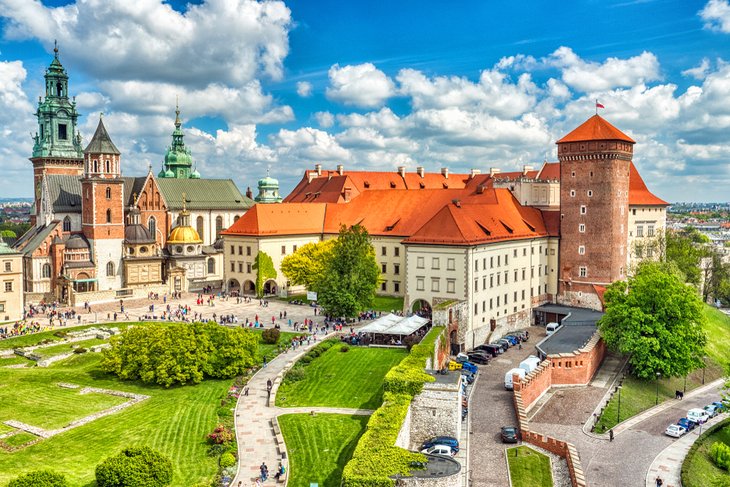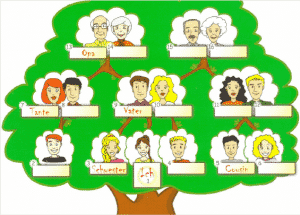Second residencies and citizenships are becoming more popular given increasing taxes that are likely to come after coronavirus.
Many people decide to buy second residency or citizenships including through property investments or other schemes.
However, another option is to buy citizenship through descent. There are many famous schemes, including Israel’s offer to Jewish people globally to become citizens.
This article, however, will focus on some of the lessor known options for citizenship by investment.
We will look at options such as Romania and Poland, alongside some of those better known schemes such as Israel and Germany.
If you wish to contact me you can email me (advice@adamfayed.com) or use the WhatsApp icon.
Introduction
Repatriation or citizenship through ancestry is closely related to the concepts of people and nation. Attempts to return to their historical homeland from different parts of the world were made by Jews, Poles and Latvians, Kazakhs, Kyrgyz, Circassians and representatives of other ethnic groups.
Today, in most countries, the repatriation procedure is regulated at the legislative level. The states concerned are taking steps to help people return home and quickly adapt to new conditions.
Repatriation – this Latin word ‘repatriate’ literally translates to “homecoming.” Today the term is used in three ways.
Political and legal
Repatriation is a state-organized process of returning to the homeland of representatives of a certain nation. Assumes assistance from the migration services and other authorities in the following points:
- moving (for example, providing free transport tickets);
- search for housing and preferential terms for rent / purchase;
- reducing the tax burden;
- full restoration of civil and political rights.
In the media, repatriation is usually called any return to the country, including illegal and semi-legal. For example, now residents of Syria and Turkey of Circassian origin are facing bureaucratic difficulties in moving to the Russian Federation. In particular, they are required to take an exam in Russian.
Diplomatic
According to the UN Staff Rules, repatriation is the return to the country of permanent residence of foreign workers. When they move home, they receive a subsidy.
Financial
What is repatriation from an economic point of view? Return of the capital to the state previously placed abroad.
In this article, we will talk about repatriation in different countries like Germany, Latvia, Poland, and other European countries and also Israel which is the leading in the list of countries having repatriates. Let’s see how it goes and what the repatriate has to do, so let’s go.
Repatriation to Israel: history and modernity
Initially, Zionism was the ideological basis of Israeli repatriation. This is a political and religious movement, the core of which is the revival of Jews in their historical homeland, Eretz Israel.
The ideas of Zionism were reflected in the Old Testament (the book of the prophet Isaiah).
The first two major waves of aliyah occurred in the late 19th – early 20th centuries and were associated with Jewish pogroms that swept across the Russian Empire. Most of the settlers were deeply religious people.
Many Jews returned to their historical homeland in the 30s of the last century, just at the time when the Nazis came to power in Germany.
Mass aliyah of Jews from the USSR took place in 1989-1991. Then M.S. Gorbachev, who took over as head of the country, softened migration legislation. Today, resettlement to Israel continues, but it is no longer Zionist, but rather economic. Experts name the following motives for the return of Jewish businessmen to their homeland:
- low level of competition in local areas;
- developed infrastructure (what is it?) of the European type;
- “Tax holidays” on most foreign income, exemption from reporting.
If you are really interested in moving to Israel continue reading. Begin with the search for reasons to move.
If you or your close relatives have Jewish roots, you can move to Israel as an immigrant. If there are no grounds for repatriation, citizenship can be obtained by naturalization – however, this option is only suitable for those who already live in Israel. Another way is to marry a citizen of the country or get a work visa.
What is the easiest way to move to Israel? Everything here is individual.
The easiest way to obtain Israeli citizenship is through repatriation, but this is not suitable for everyone. Under the Law of Return, Jews — people born of a Jewish mother or who have undergone conversion — and their close relatives have the right to repatriation.
These are husbands, wives, children (including adopted children), grandchildren with their spouses, and widows or widows.
By the time the documents are submitted for consular verification, candidates must have been officially married for at least a year. The future repatriate must confirm his origin with documents.
How can you prove that you have the right to repatriate? Collect documents confirming the origin.
These can be any Soviet documents that indicate your nationality or the nationality of your parents and grandparents: birth or death certificates, diplomas, passports, party membership cards, awards or extracts from house books.
Photos from the family archive will come in handy if your relatives are depicted in them in religious clothes, or a certificate of the burial of relatives in a Jewish cemetery.
If the required documents have been found then you need to go to the embassy. I need to sign up for a consular check at the repatriation department.
It is worth doing this in advance: you can wait up to six months for your turn. At the embassy, you need to fill out a form.
Among other things, this document will be asked to indicate nationality and religion. Then there will be an interview with the consul, who will review the documents and ask clarifying questions. It is important to prepare for it. If a family moves, then all its members must do this.
Also you don’t have to wait a lot for the confirmation; the consul will announce his decision at the meeting.
He may immediately approve your application, reject it, or ask for additional documents. Some repatriates are interviewed two or three times. Sometimes there are especially difficult situations that the consulate can consider for several months, but this happens very rarely.
After moving, the state will help you adapt. Upon arrival, you should be met by representatives of the Ministry of Integration, who will help you go through passport control and issue documents – ‘teudat ole’, a repatriate’s card, and ‘teudat zeut’, a temporary identity card.
They will also give cash as part of Israel’s financial assistance to repatriates and pay for a taxi to their place of residence. Financial assistance is provided at will: repatriates can refuse it.
Those moving under the repatriation program are provided with benefits: free health insurance, Hebrew courses, help with renting a house, and a reduced income tax. In Israel, returnees can also apply for a ‘darkon’, that is a passport. It allows you to travel without a visa to almost 150 countries.
Among the first steps in Israel is to open a bank account, sign up for a health insurance fund (this is something like a polyclinic), register with the Ministry of Integration, issue monthly financial assistance (if needed) and a rental benefit. If desired, repatriates can choose an adaptation program.
A famous recent example of somebody who got Israeli citizenship by ancestry is the Chelsea owner Roman Abramovich.

Repatriation to Germany

In 1954, a law on the admission of immigrants was adopted in Germany, thereby providing an opportunity for people of German nationality to return to their historical homeland. And only in 1961 the first wave of returning to their historical homeland began from the Soviet Union. In the 70s, the flow of immigrants began to increase, but this still could not be compared with the mid-90s, when tens of thousands of German repatriates crowded at the German embassy to process documents for repatriation.
Since 1993, a new law has come into force, where the arriving Germans are called late settlers (Spaetaussiedler). The conditions of admission began to change, designed to limit this endless flow, because the German government did not assume that it was necessary to accept not several thousand ethnic Germans, but several million.
Since 1997, the so-called shrachtest, a language test, has been introduced, partially first, then for all families. The Federal Law on the Exiled (Bundesvertriebenengesetz – BVFG) defines who is a late settler and on what grounds it is determined. The status and, accordingly, the rights of family members of late migrants are determined by paragraphs (4, 7, 8). According to this law, the following groups of persons are distinguished:
- Spaetaussiedler, paragraph 4 BVFG (late settler)
These are people who entered the Federal Republic of Germany after 31.12.1992. Instead of “Vertriebenenausweis” they get “Bescheinigung nach”, (it is a “Certification in accordance with par. 15 BVFG new edition”). Only a person of German nationality can be considered a late migrant (Spaetaussiedler). Who can relate to the latter is defined in paragraph 6 Abs 2 BVFG. In accordance with the provision of this norm, a person of German nationality is considered to be one who is of German descent (for this it is enough that one of the parents – the mother or father is German); to whom such confirming signs as German language, German upbringing, German culture were instilled by parents or other relatives; finally, the one who recognized himself as a German, in other words, whose nationality in the passport was written “German”.
- Husband and wife of a late immigrant, if their marriage lasted 3 years or more before leaving for Germany.
This group of people also receives the status of Germans under article 116 of the German Constitution and German citizenship. Their situation is not much different from that of Spaetaussiedler. They also receive an IDP, a language course and an integration allowance. However, unlike Spaetaussiedler, this group of people does not receive “commandant’s office” according to paragraph 9 BVFG. Also they are not entitled to a pension and the work experience they have earned in the country they were living is not taken into account when calculating the pension.
- Descendants or children of the late settler
The descendants of the late immigrant are Germans according to Article 116 of the German Constitution, even if their passport contains a nationality other than “German”. They receive German citizenship, upon reaching the age of 16 they are given a passport (Personalausweis). Children of late immigrants may, if they wish, change their surname and first name in accordance with paragraph 94 of the BVFG. They do not receive a pension or commandant’s money.
Repatriation to Latvia

A person who is a citizen of Latvia or whose direct ascending relative is Latvian or Libietis (Livonian), and who voluntarily moves for permanent residence in the Republic of Latvia is called a Latvian repatriate.
The right to enter Latvia together with the repatriate belongs to the members of his family: the repatriate’s spouse, children of the repatriate and his spouse, persons under guardianship or trusteeship, and parents who have reached a certain retirement age established by Latvian regulatory enactments or are dependent on the repatriate, and who are in the country previous residence for at least one year before requesting the status of the repatriate, they had a common household with the repatriate.
Before deciding to move permanently to Latvia, we recommend that you familiarize yourself with the detailed information about the repatriation process, as well as your rights and obligations.
What services does the OCMA Migration Department provide?
- considers documents, makes a decision on granting the status of a repatriate and granting a permanent residence permit to repatriates and their family members (citizens of another state);
- provides general information on social rights and guarantees for repatriates;
- considers applications of repatriates for the provision of material and other type of assistance.
The Migration Department does not deal with issues of citizenship, health care, social insurance that are within the competence of municipal and other state institutions, but cooperates with these institutions, facilitating your adaptation and integration before your arrival in the territory of a particular local government.
If you left Latvia before May 4, 1990, you are entitled to material benefits. The state guarantees:
- reimbursement of travel expenses, if the documents were submitted within a year after their issuance (up to 711.44 euros per person);
- payment of monthly benefits equal to 90% of the minimum wage in case of unemployment. To receive the allowance, you must submit an application to the Office and register with the State Employment Agency as unemployed within a year after arriving permanently in Latvia. The benefit is paid monthly for up to six months while you are unemployed.
Repatriation to Poland

Poland is a country that has radically changed for the better over several decades. Membership in the European Union, stable economic growth, constantly increasing living standards of the population, cultural wealth, predictability and security make Poland a desirable option for emigration for many residents of the post-Soviet space. Moving to this European country is not so easy, but having Polish roots seriously increases the chances of a positive outcome of the case.
People eligible for this method of legal migration
Simplified registration of citizenship is provided for persons of Polish origin living in the Asian part of the post-Soviet space (Kazakhstan, Uzbekistan, etc.).
According to the Law on Repatriation, this category includes foreign citizens, one of the parents (grandfather, grandmother or great-grandfather / great-grandmother) of which is an ethnic Pole; preserving knowledge of the Polish language, adhering to national customs. Also, a person who was previously a citizen of the country (or a son / daughter, grandson / granddaughter, great-grandson / great-granddaughter of a Polish citizen) can obtain citizenship as a repatriate by the Consul’s decision.
Persons who resettled from Poland under the 1947-1957 repatriation agreements to the former USSR are not eligible for this option of obtaining citizenship. In addition, foreign citizens whose actions were directed against the state interests of Poland or human rights may not count on repatriation to Poland.
Repatriation procedure
First of all, you need to contact the Polish consulate for visa application forms. A paper filled out in Polish must be returned in duplicate, with documentary evidence of Polish origin or citizenship attached to it. For these purposes, the following are suitable:
- Polish identity cards (your own, parents or grandparents);
- baptismal certificates;
- birth / marriage certificates;
- papers confirming military service in the Polish Army (with a record of nationality);
- papers of imprisonment or deportation (with a record of nationality);
- identity cards (with a record of nationality);
- other departmental papers;
- confirmation of the persecution, rehabilitation or deportation of a person of Polish nationality.
In any case, these must be Polish papers received from church or secular authorities, or documents issued in the former of your country. A photograph must also be attached to the application. Another document that cannot be dispensed with when applying for a new citizenship is, of course, a passport.
In addition, the applicant must prove that he has, where and for what to live in Poland (for example, receive an invitation from the Commune, a Polish administrative institution, or from an individual residing in Poland). In turn, elderly repatriates who are of retirement age may not confirm the existence of sources of income, since after resettlement they will receive a Polish pension (in this case, the time of work in another country is taken into account). Lack of maintenance and a roof over his head in Poland does not deprive a potential repatriate of the opportunity to issue a new passport – in such situations, the decision on granting citizenship is made by the Consul of Poland.
To cross the Polish border, a repatriate is issued a special visa, which lasts 12 months. Nationality is acquired by a repatriate on the same day he crosses the border. Minors also receive Polish citizenship if their parents or guardians are repatriates. If one of the parents undergoes the repatriation procedure, formal consent is required from the other. Persons over the age of 16 can change their citizenship to Polish solely at their own discretion.
Also, family members of an immigrant can obtain legal residence in the country, even if their origin is not Polish. You can get this paper from the Office of Repatriation and Foreigners. Arriving in Poland, the new citizen receives support from the state budget and the right to study the Polish language and assistance in adapting to the country.
Repatriation to Romania

This country has been one of the 28 EU members since 2011. This suggests that, having issued a passport of this state, a person automatically becomes a citizen of the European Union. Accordingly, a person receives the right not only to live in the EU, but also to study and work.
Romania is famous for the most liberal policy of all 28 EU countries, allowing foreigners under the repatriation program to obtain citizenship in just 14 months, and without the requirement to invest hundreds of thousands of euros and reside in the country for 10 years.
Repatriation means returning to the country in which the ancestors lived. According to Article 11 of the Law on Citizenship and Article 7 of the Constitution of Romania, it is necessary to prove the fact that “Romanian roots” actually exist – in this case, you can obtain Romanian citizenship. In the event that in the genealogical line of the applicant there were ancestors who were born or lived on the territory of Romania for a certain period before 1940, then the person has the right, according to the law, to obtain Romanian citizenship.
This program is especially popular among citizens of the former CIS countries (this list includes Russia, Ukraine, Moldova, Belarus), because most of the residents of Romania who lived on its territory before 1940 were expelled by force to the cities of the former Soviet Union. Thus, almost every resident of the states that were part of the USSR has the legal right to apply for a Romanian passport.
Conclusion
Many countries have citizenship by ancestry schemes. It can be an excellent way to get a second passport or citizenship.
Each country has its own rules of course, and those are always changing, so it is always best to check the updated situation.
Further Reading
What options exists for people in Hong Kong?



